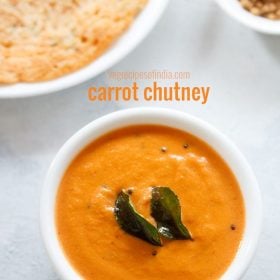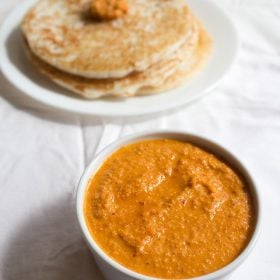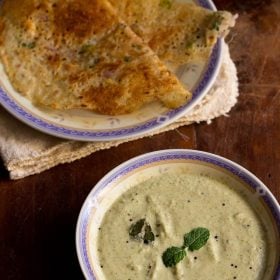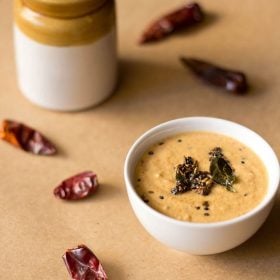
Chutneys are those side dishes or condiments that form an essential part of Indian cuisine in general. Be it in any corner of our country, a variety of chutneys is what completes a meal in Indian food culture. Not just that, chutneys also elevate the flavors between different dishes in a meal and make it all the more sumptuous. Just like this Tamil Nadu style Kara Chutney – a really fiery chutney made with pearl onions (shallots), tomatoes, spices and herbs. If you thought South India was only about coconut chutney, this one is going to change your perception completely!
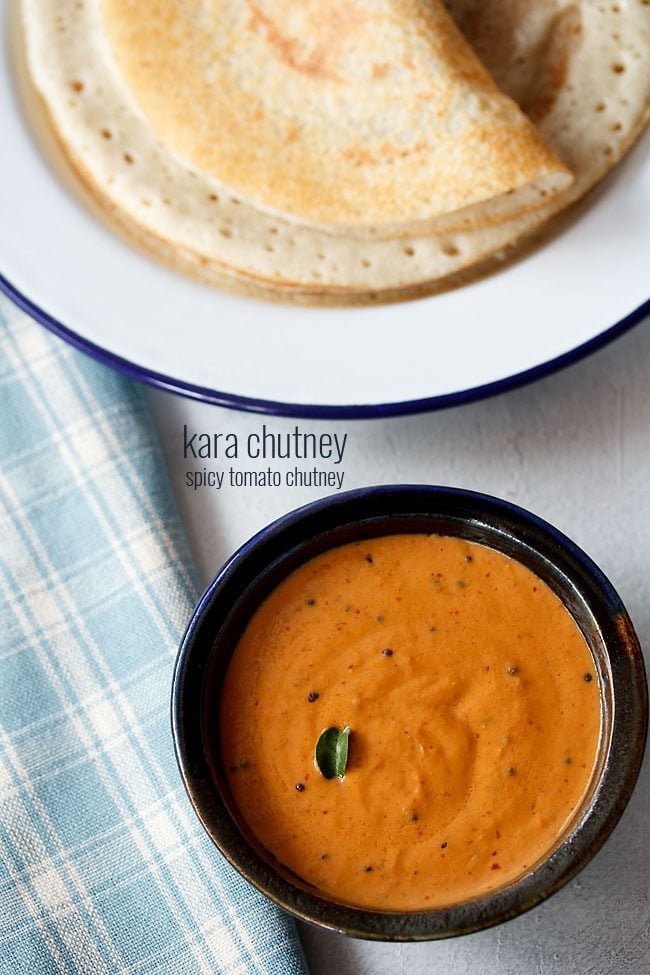

What is Kara Chutney
The Tamil word ‘kara’ refers to spicy and chutney is something that we Indian can’t really think our meals without! When put together, Kara Chutney simply means a spicy chutney which is a specialty of the cuisine of Tamil Nadu in South India.
Since the flavor profile of the Kara Chutney is essentially spicy, it pairs really well with dosas, idlis and similar dishes that do not have a lot of flavors in their composition. I mean just imagine dipping steaming hot, fluffy idli morsels into a bowl of this yummy spicy chutney and having them. Heavenly and a combination to literally die for, isn’t it?
According to me, following are the essentials for a perfect Kara Chutney:
- Pearl onions, also known as Madras vengayam, chinna vengayam or shallots. You could use your regular onions, but these small onions do impart a distinctive flavor in the chutney. This also balances the tanginess that comes from the tomatoes.
- Dried red chilies, obviously to make the chutney ‘kara’ and to impart the beautiful red color in it. You can either use the byadagi or Kashmiri varieties.
- Garlic, to add that much needed pungency along with the chilies. I also feel that garlic is one such spice that literally makes the simplest of dishes, a marvel!
- Lentils, both the urad dal and chana dal add a certain body and texture to the chutney. Thus, much needed.
- Tamarind, another ingredient that brings in an apt sourness in the chutney.
- Tempering, mustard seeds, curry leaves and asafoetida sautéed in sesame oil and poured over the ground ingredient, completes the dish and makes it a chutney.
These are the ingredients/elements that make this chutney, the way it is. That is, unique!
Me and my family are huge fans of all sorts of chutneys. To top the list, there is this Kara Chutney whenever we want to keep it hot followed by the other quintessential picks like the Coconut Chutney, Onion Chutney and also the Tomato Chutney. These are a few of the chutneys that you’ll find in my home, almost at all times.
While you may find most of the restaurants and hotels serving both coconut chutney and an onion-tomato chutney with idlis and dosas. However, whenever I’m making these breakfast dishes, I usually make just one type of chutney and a sambar to go with it. This Kara Chutney gets made, many a times as it pairs extremely well with a plain Dosa, Ghee Roast Dosa and most types of idlis.
Like I mentioned earlier too, this Kara Chutney is spicy and red mainly because of the red chilies that are added in it. If you wish, you can make it less spicy by adding lesser number of dried red chilies or using chilies that are low in heat.
Apart from what I usually serve this Kara Chutney with, you can also relish it a rava idli, masala dosa or uttapam. This chutney specifically also goes very well with Vendhaya Dosa.
Step-by-Step Guide
How to make Kara Chutney
Making Kara Chutney
1. Heat 2 teaspoons sesame oil in a pan. Lower the flame and add 1 teaspoon urad dal (split husked black gram) and 1 teaspoon chana dal (split and husked Bengal gram).
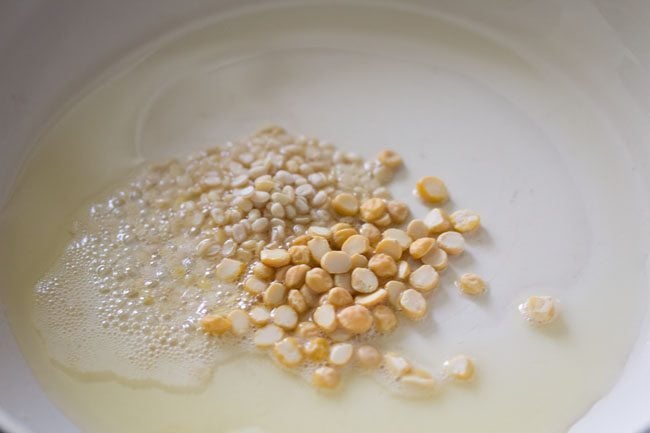

2. On low heat, sauté both the lentils till they start turning golden.
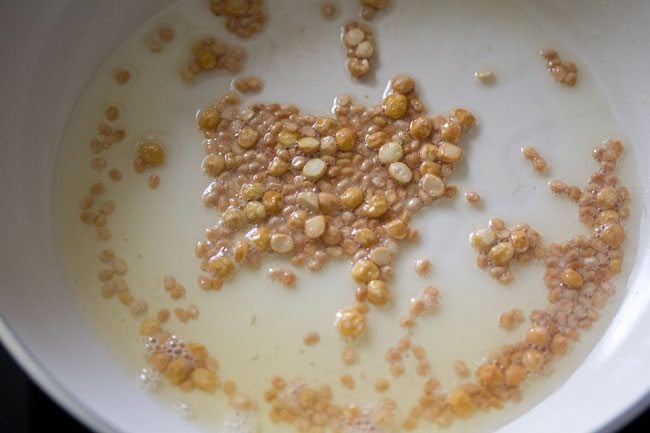

3. Then, add ¼ cup sliced pearl onions (shallots) or ¼ cup chopped onions.
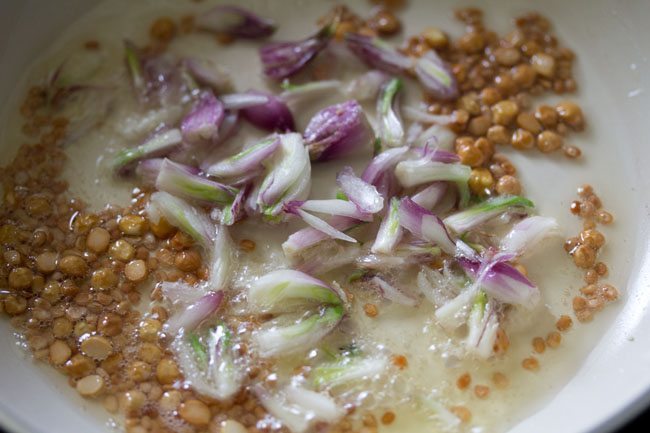

4. Begin to sauté.
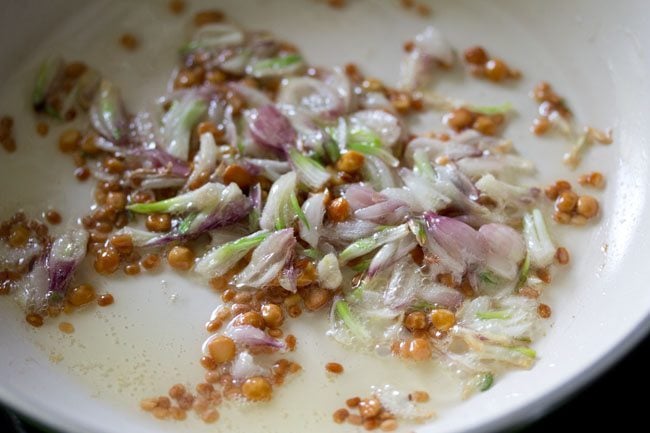

5. Sauté till the onions begin to turn golden. Then, add 1 teaspoon chopped garlic.
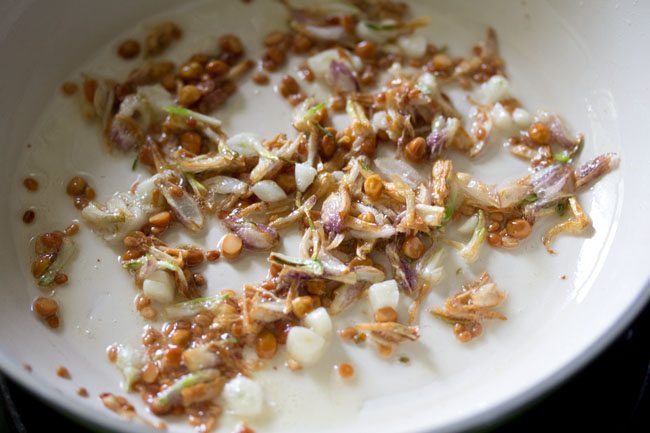

6. Now, add 4 to 5 dried red chilies. You can use byadagi red chilies or Kashmiri red chilies. I used byadagi chilies.
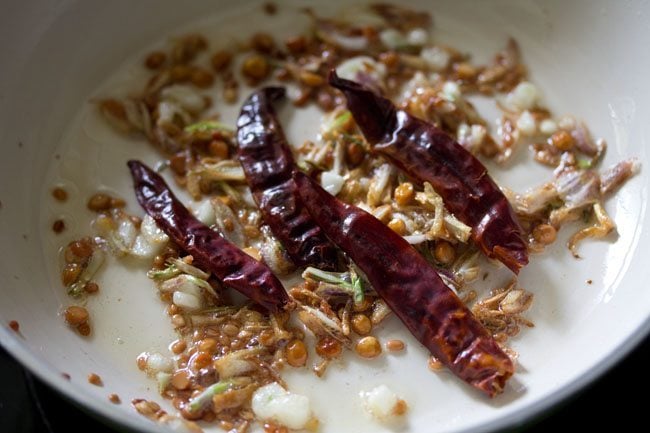

7. Sauté for half a minute or till the red chilies change color.
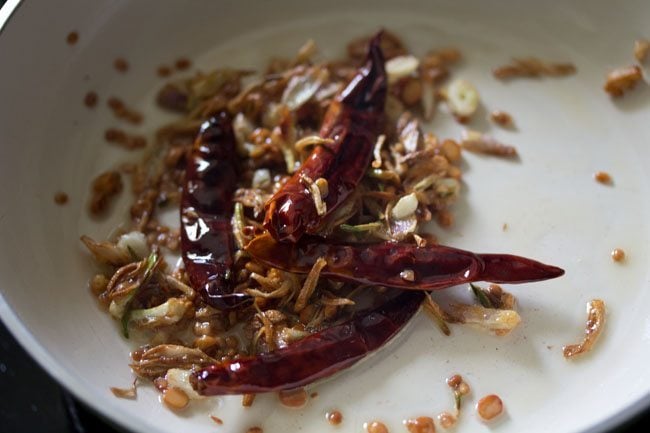

8. Now, add ½ cup chopped tomatoes.
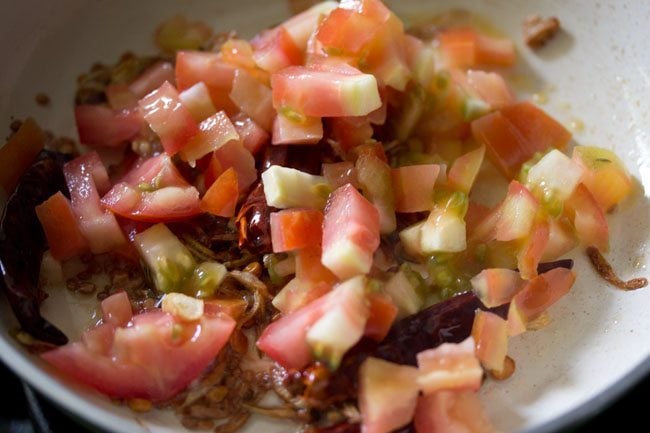

9. Mix well.
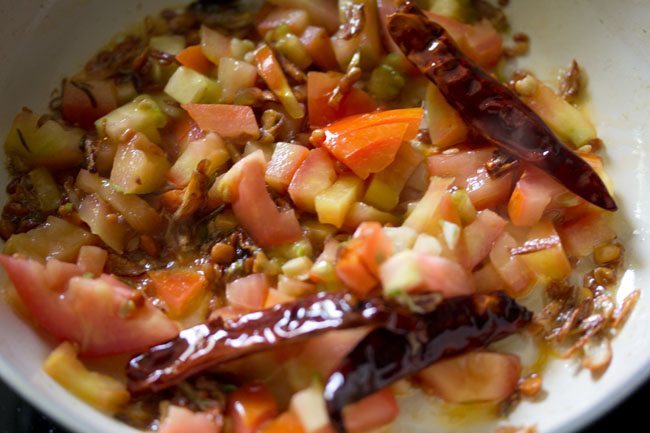

10. Season with salt as per taste. Mix well.
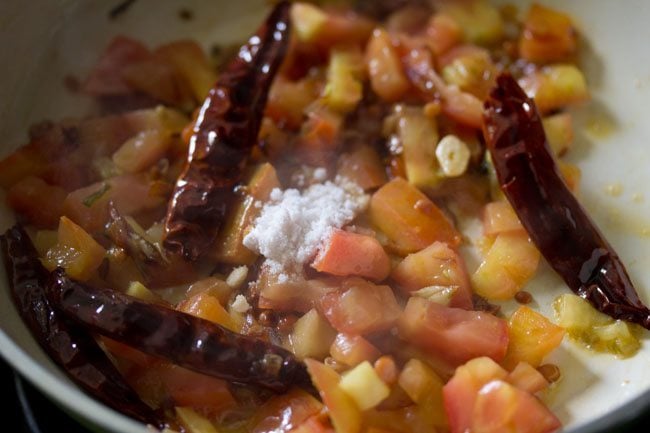

11. Next, add ¼ teaspoon tamarind.
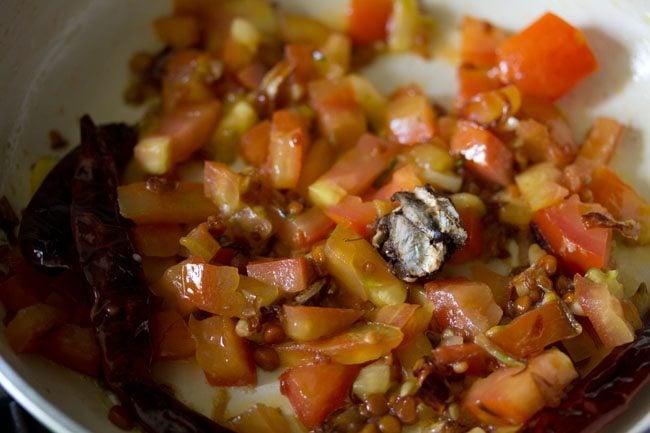

12. Sauté the tomatoes on low heat.
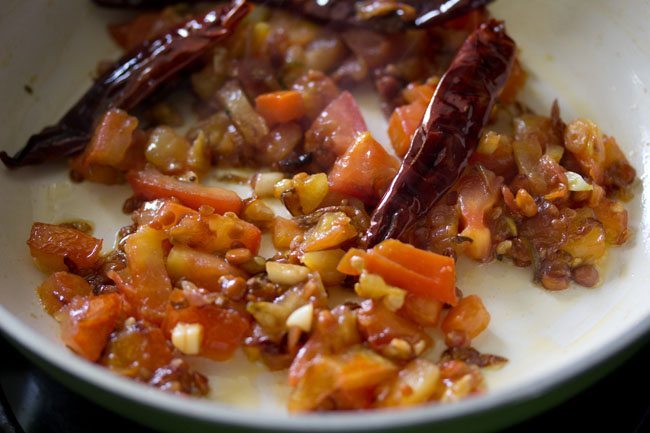

13. The tomatoes need to get softened. So, stir and sauté till they soften. Switch off the heat. Let the mixture become warm or cool down to room temperature.
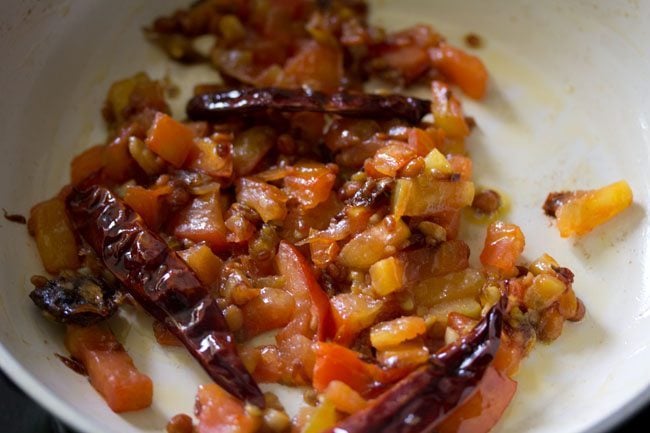

14. Once the mixture becomes warm or cools, add it in a chutney grinder or a small blender. Add ¼ cup water.
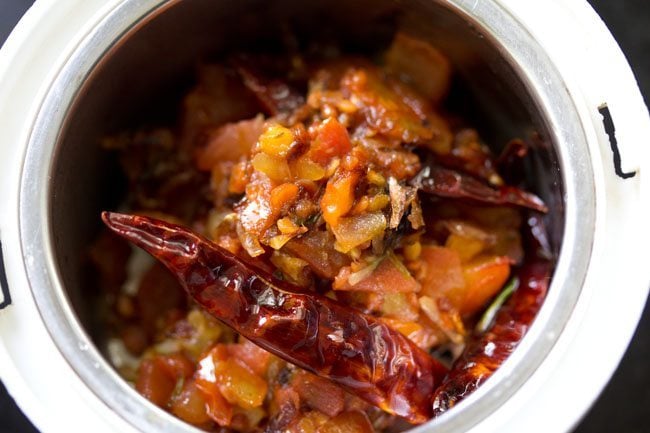

15. Grind the ingredients to a smooth paste. Remove the chutney in a bowl and keep aside.
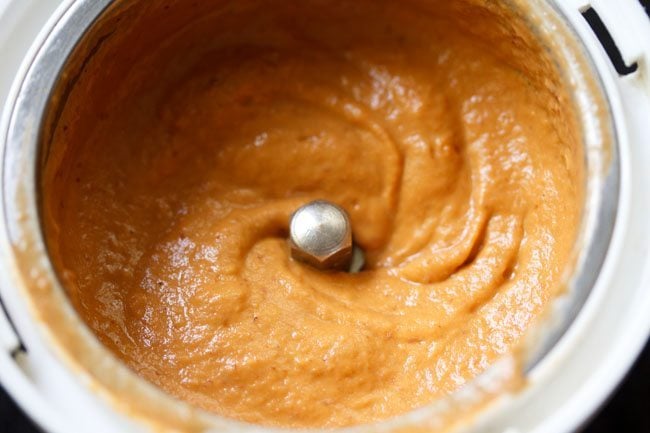

16. Add remaining ¼ cup water and run the grinder jar again, so that the chutney sticking at the sides and the bottom get mixed with water. Add this chutney mixed water to the bowl and mix very well.
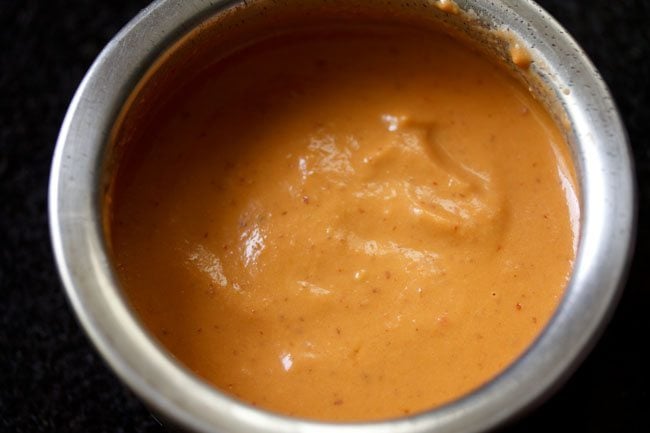

Tempering Kara Chutney
17. In the same pan or a different pan, heat 2 teaspoons sesame oil. Add ½ teaspoon mustard seeds and let them splutter.
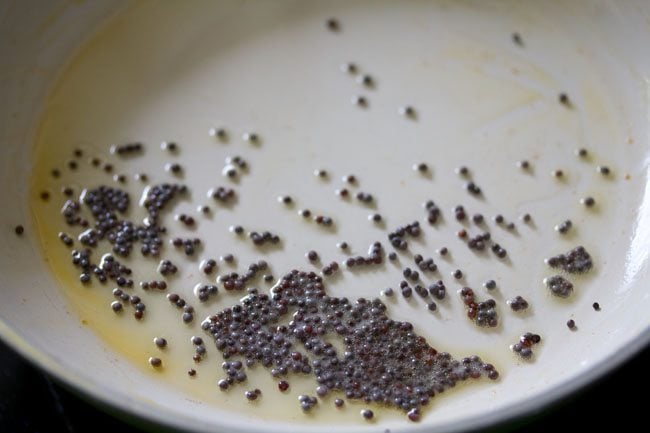

18. Then, add 7 to 8 curry leaves and a pinch of asafoetida (hing). Sauté till the curry leaves become crisp.
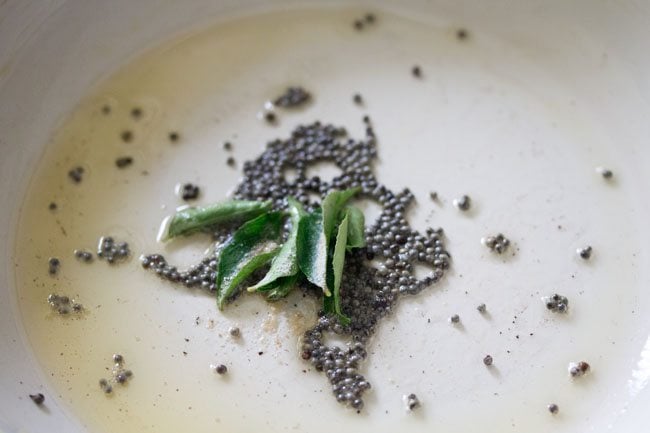

19. Pour the tempering in the Kara Chutney. Mix well.
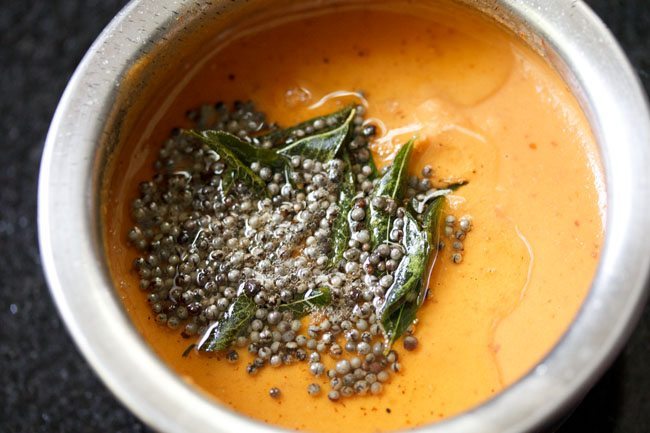

20. Serve Kara Chutney with idli, set dosa or uttapam. This spicy chutney also goes well with paniyaram.
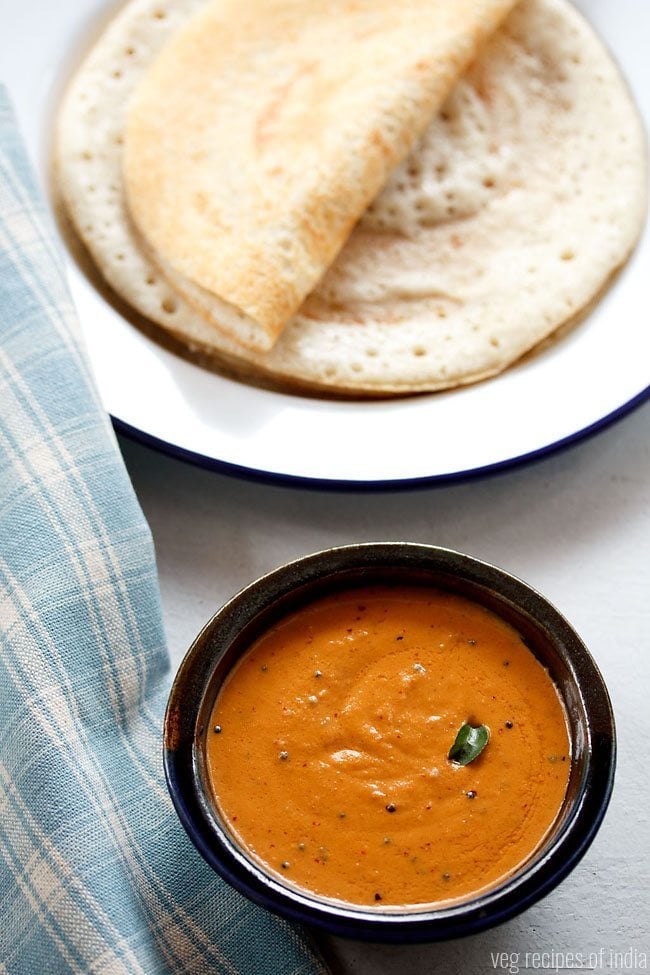

Expert Tips
- Add less dried red chilies for a less spicy version. You can even add chilies that are low in heat for low spice levels in the chutney. You can use either byadagi red chilies or Kashmiri red chilies.
- Discard the seeds from the dried red chilies and then use them in this recipe.
- If at all you don’t have or can’t source pearl onions or shallots, then use the regular onions in this recipe.
- In case you don’t have tamarind, then just skip adding it.
- You can add less or more water depending on the consistency you want in the chutney.
More Chutney Recipes To Try!
Chutney Recipes
Chutney Recipes
Chutney Recipes
Chutney Recipes
Please be sure to rate the recipe in the recipe card or leave a comment below if you have made it. For more vegetarian inspirations, Sign Up for my emails or follow me on Instagram, Youtube, Facebook, Pinterest or Twitter.
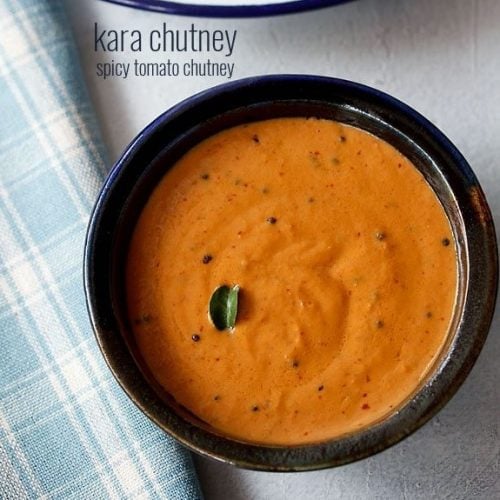

Spicy Kara Chutney
Kara chutney is a spicy chutney made with pearl onions (shallots), tomatoes, spices and herbs from the Tamil Nadu cuisine.
Prep Time 5 minutes
Cook Time 15 minutes
Total Time 20 minutes
Prevent your screen from going dark while making the recipe
sauteing & grinding
Heat 2 teaspoons sesame oil in a pan.
Lower the flame and then add 1 teaspoon urad dal (split husked black gram) and 1 teaspoon chana dal (split & husked bengal gram).
On a low flame, saute both the lentils till they start turning golden.
Then add 1/4 cup sliced pearl onions/shallots or 1/4 cup chopped onions.
Stir and saute till the pearl onions begin to turn golden. Then add garlic.
Now add 4 to 5 dry red chilies. Saute for half a minute.
Next add 1/2 cup chopped tomatoes.
Add salt & tamarind.
Saute the tomatoes on a low flame till they soften.
Switch off the flame and let the chutney mixture become warm or cool down at room temperature.
Once the mixture becomes warm or cools, then add it in a chutney grinder or a small blender.
Add 1/4 cup water and grind to a smooth paste.
Remove the chutney in a a bowl and keep aside.
Add remaining 1/4 cup water and run the grinder jar again, so that the chutney sticking at the sides and the bottom get mixed with water.
Add this chutney mixed water to the bowl and mix very well.
tempering for kaara chutney
In the same pan or a different pan, heat 2 teaspoons sesame oil. Add ½ tsp mustard seeds and crackle them.
Then add 7 to 8 curry leaves and a pinch of asafoetida.
Saute till the curry leaves become crisp.
Pour the tempering mixture in the kara chutney. Mix well.
Serve kaara chutney with idli, dosa or uttapam. This spicy chutney also goes well with paniyarams.
- You can add less or more water depending on the kara chutney consistency you want.
- You can add less dry red chilies for a less spicy version.
- You can also use dry red chilies which are low in heat for a less spicy chutney.
- You can remove the seeds from dry red chilies.
- If tamarind is not available, then skip it.
This Kara Chutney recipe from the archives was first published in March 2016. It has been updated and republished in April 2024.

Source link
